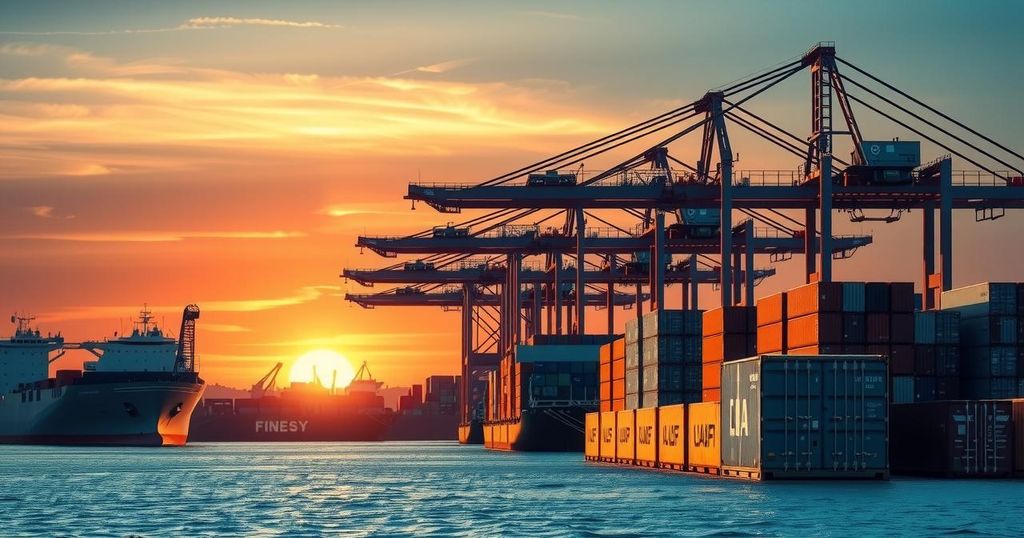President Trump delays immediate tariffs while directing federal agencies to investigate extensive trade issues, which may result in future tariffs on imported goods from China, Canada, and Mexico. This strategic review serves to potentially reshape international trade relationships and address trade deficits and compliance with existing agreements.
President Trump refrains from imposing immediate tariffs on imported goods but is set to issue an executive order that initiates a comprehensive review of various trade issues. This examination may ultimately lead to tariffs impacting products from China, Canada, Mexico, and potentially other nations. The decision indicates a strategic approach to fulfill campaign promises regarding tariffs, while temporarily avoiding escalating tensions with foreign governments who may retaliate with their own tariffs.
The executive order will focus on an array of topics, including trade deficits and the agreements made with China, Canada, and Mexico. This set of investigations will provide President Trump with the necessary authority to impose tariffs for a variety of reasons, potentially altering international supply chains and sparking global trade conflicts in the foreseeable future.
Federal agencies will be tasked with assessing unfair trade practices and reviewing the adherence of foreign governments to trade agreements made during Trump’s first term. Additionally, the executive order will evaluate the establishment of an “External Revenue Service” aimed at managing the collection of tariffs and duties.
Moreover, Mr. Trump has ordered the examination of tariffs imposed for national security purposes and the de minimis provision, which exempts low-value goods from tariffs. This loophole has permitted substantial amounts of Chinese goods to bypass tariffs established by Trump earlier. While he is postponing immediate tariff actions, Trump remains firm in his belief regarding their strategic utility for the economy.
The article discusses President Trump’s cautious stance on imposing tariffs during a period characterized by intricate international trade relations. It highlights his administration’s methodical review of trade agreements and practices, underscoring the significant implications for countries such as China, Canada, and Mexico. Understanding the variety of trade issues at hand is vital in evaluating the potential future economic landscape under Trump’s leadership and the global reactions to his policies.
In conclusion, while President Trump has opted against immediate tariffs, the forthcoming executive order signifies a deliberate strategy to scrutinize various trade practices with the potential for future actions. This approach aims not only to uphold his campaign promises but also to navigate complex international relations delicately. The comprehensive review could ultimately reshape America’s trade landscape in the coming months.
Original Source: www.nytimes.com






